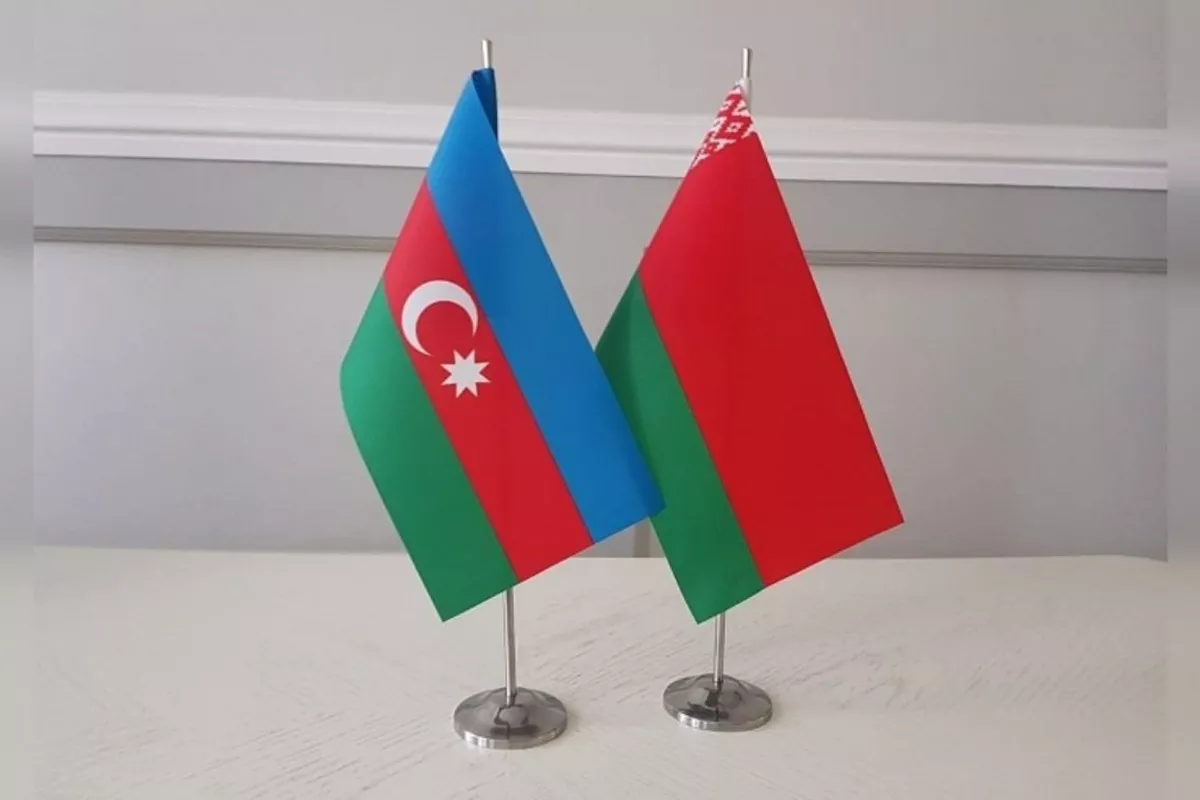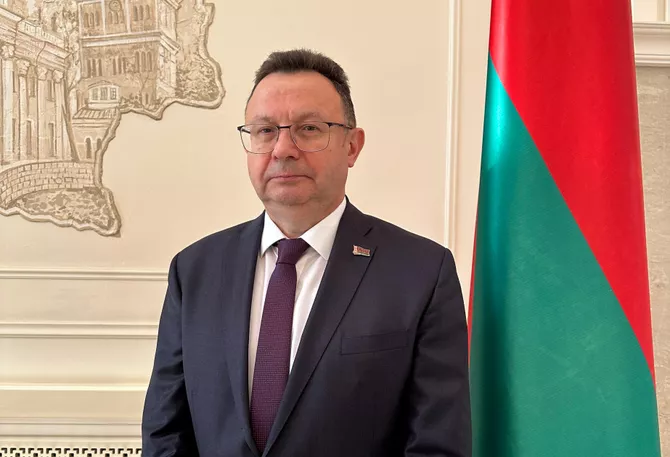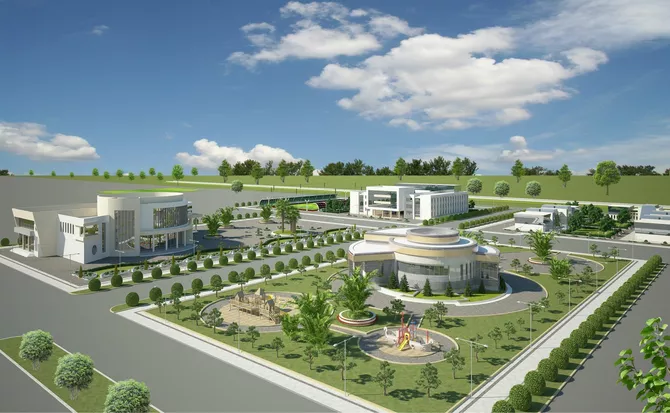
photo: News.az
Azerbaijan and Belarus are deepening economic and industrial cooperation, expanding from food production to machinery and defense projects amid record trade growth. In an era where strategic alliances are becoming the backbone of resilient economies, Azerbaijan and Belarus stand out as a model of pragmatic partnership and mutual trust. The upcoming visit of Belarusian Deputy Prime Minister Natalia Petkevich to Azerbaijan on October 28 marks another important milestone in a relationship that continues to evolve, expand, and deepen. During her visit, she will take part in the next session of the Azerbaijan-Belarus Intergovernmental Commission, where both sides are expected to sign new agreements across multiple sectors - further strengthening a partnership that is already broad and dynamic.
While the exact areas of the new accords have not been disclosed, one thing is clear: there are virtually no spheres in which Baku and Minsk have not already built meaningful cooperation. As the Ambassador of Belarus to Azerbaijan, Dmitry Pinevich, noted during a recent business forum in Baku, there is no sector of the economy where the two countries do not collaborate - from agriculture and food production to construction, industry, and defense.

Photo: AZERTAC
This relationship is not merely symbolic. It is practical, productive, and results-oriented. At the forum, for instance, the Rogachev Dairy Canning Plant of Belarus signed agreements with Azerbaijani companies Foodini and Yaylaq to supply canned dairy products, butter, and powdered milk. These may seem like small steps, but they symbolize something much greater: the growing confidence of both sides in each other’s reliability and market potential.
In Azerbaijan, Belarusian food products have long been synonymous with quality and authenticity. The label “Made in Belarus” is perceived by Azerbaijani consumers as a guarantee of natural, high-standard goods. Dairy, sausage, and confectionery products from Belarus are sold in specialized stores throughout Baku, and they rarely stay on shelves for long. Their presence in supermarkets and other retail chains is also expanding, reflecting the depth of consumer trust.
Beyond consumer goods, the economic partnership is broad and institutionalized. As of September, 127 Belarusian companies have been registered in Azerbaijan, operating across industry, trade, construction, transport, and services. Eighty-five of them are active today. Azerbaijan’s Trade House in Belarus, promoting Azerbaijani wines, fruits, vegetables, and food products, further illustrates the reciprocity of this relationship. Belarus, in turn, has begun importing Istisu mineral water - a symbolic but telling example of deepening trade integration.
Trade turnover continues its upward trajectory. In 2024, bilateral trade rose by an impressive 46 percent, reaching $500 million. By August 2025, the figure had already reached $274 million, suggesting that both sides may soon set a new record. Yet, while Azerbaijani exports still lag behind imports, totaling $52 million, the structure of this trade demonstrates clear complementarities rather than competition.
Belarus’s contribution to Azerbaijan’s industrial landscape cannot be overstated. The country’s reputation as an industrial powerhouse complements Azerbaijan’s drive to expand its manufacturing base. Nearly 80 percent of tractors used in Azerbaijan were produced in Belarus - a statistic that speaks volumes about trust and technological interdependence. For nearly two decades, the Ganja Automobile Plant has assembled Belarusian tractors and agricultural machinery in partnership with the Minsk Automobile Plant. In 2024, this collaboration expanded to include the assembly of rescue and firefighting vehicles, with future plans for harvester and passenger vehicle production.
Such cooperation goes hand in hand with the development of service infrastructure. New maintenance centers for Belarusian machinery are being established in the East Zangezur and Karabakh economic zones - regions symbolizing post-conflict recovery and economic revival. These projects are not only technical partnerships but also statements of solidarity and shared vision for the future.
Industrial cooperation does not end there. A joint venture assembling elevators is already active in Azerbaijan, with discussions underway on localizing component production. Belarus has also expressed keen interest in reconstruction projects across the liberated territories. Its companies are currently designing a residential complex in the Aghdam district, with plans to participate in the Aghdam Industrial Park. These efforts underscore a shared commitment to long-term regional development.

photo: Smeltd.az
According to Ambassador Pinevich, Belarus places a strategic priority on industrial cooperation aimed at creating joint manufacturing enterprises. He emphasized during the Baku forum that both countries are exploring the establishment of joint and international production facilities to boost efficiency and strengthen their presence in global markets. “We are interested in systemic cooperation with Azerbaijani business, the private sector, and government support structures,” Pinevich stated - words that capture the forward-looking spirit of the partnership.
But cooperation between the two countries goes beyond the economy. It also extends into the military-technical sphere - a dimension often overlooked, yet deeply significant. In September, First Deputy Minister of Defense and Chief of the General Staff of the Azerbaijani Army, Colonel General Karim Valiyev, visited Belarus, where he met with Major General Pavel Muraveyko, Chief of the General Staff of the Armed Forces of Belarus. The two sides discussed the state of bilateral military cooperation and explored ways to expand collaboration in key areas of mutual interest.
Azerbaijan has long sourced modern weaponry from Belarus and carries out upgrades of its own equipment there. While such cooperation occasionally sparks speculation, both sides have always been open about their partnership. The Polonez missile systems, purchased from Belarus and showcased at the 2018 military parade in Baku, became a symbol of this transparency - and of Azerbaijan’s growing defense capabilities. These systems, along with Belarus’s advanced Groza-6 electronic warfare units, played a significant role during the 44-day war, demonstrating that this partnership has real strategic impact.
Economic interaction is expanding into new arenas as well. According to Belarusian state agency BELTA, Azerbaijani companies ranked second only to China in purchasing Belarusian timber products on the Belarusian Universal Commodity Exchange (BUCE) during the first nine months of 2025. As of October 16, a total of 176 Azerbaijani firms were accredited on the BUCE, including 38 newly registered this year. Azerbaijan accounted for more than 20 percent of all Belarusian wood exports through the exchange - a remarkable indicator of how intertwined the two economies have become.
Even more interesting is what lies ahead. The two sides are currently exploring the use of the exchange mechanism to supply Belarusian ferrous metal products to Azerbaijan. This new trade direction, if implemented, will not only diversify trade but also inject additional dynamism into exchange-based commerce, reinforcing the already strong economic bridge between the two nations.
Ultimately, the Azerbaijan-Belarus partnership stands as an example of pragmatic diplomacy - grounded in trust, shared goals, and mutual respect. It is not driven by slogans but by results. Both nations understand that in a world increasingly defined by uncertainty, diversification of partnerships and industrial cooperation is the surest path to stability and growth.
The trajectory is clear: from dairy and machinery to defense and innovation, Baku and Minsk are steadily expanding the frontiers of cooperation. And as they continue to set new records in trade, investment, and technology, one thing becomes unmistakably evident - the relationship between Azerbaijan and Belarus is not just thriving; it is evolving into one of the most comprehensive and resilient partnerships in the post-Soviet space.
Share on social media